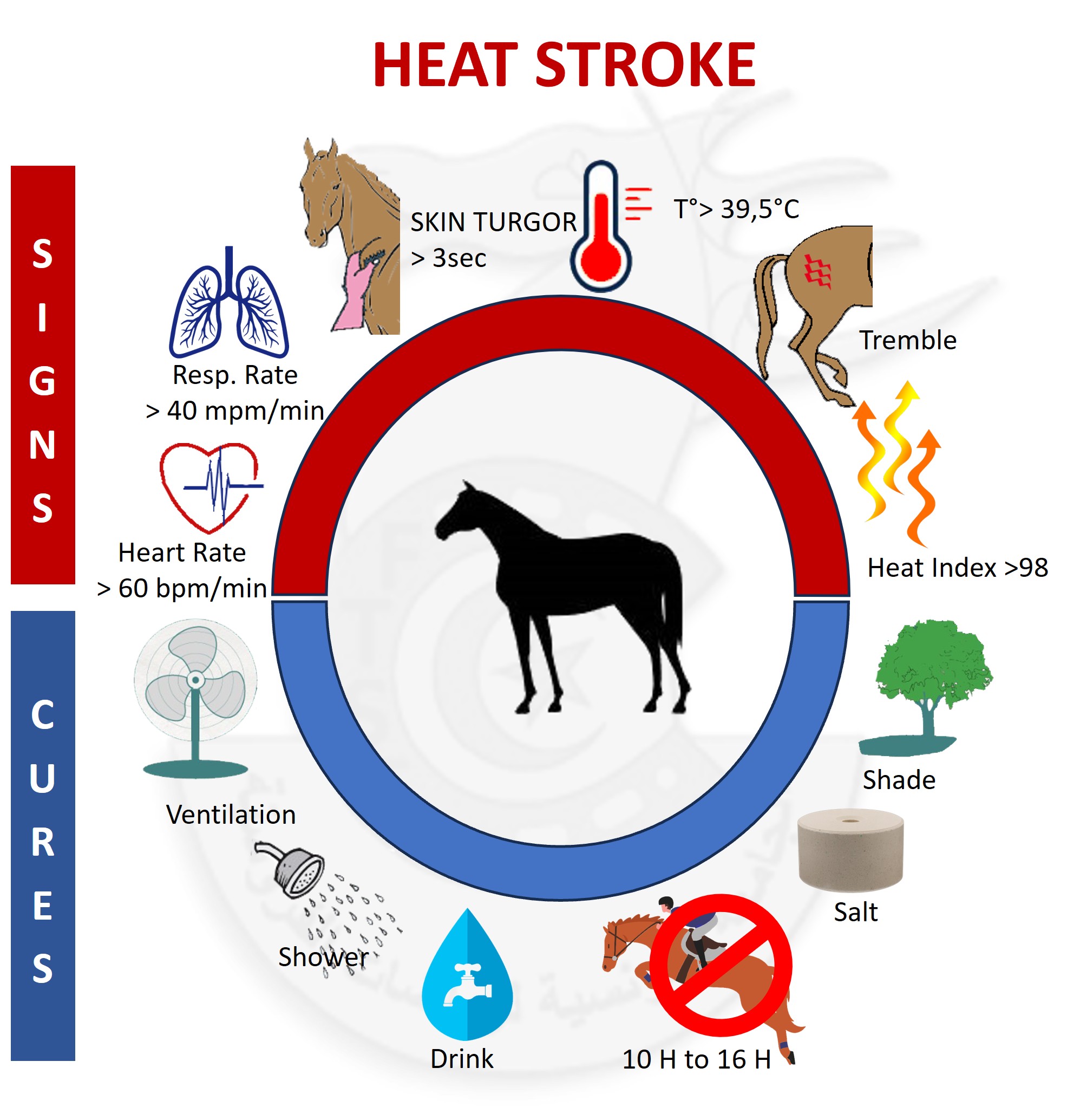With rising summer temperatures accompanied by high humidity during the day and night where the heat index (the sum of recorded temperature and humidity) exceeds 98, you should closely monitor your horse for the following warning signs of heat stress:
- rectal temperature above 39.5°C;
- rapid respiratory rate over 40 bpm, elevated heart rate over 60 bpm at rest;
- profuse or absent sweating;
- sudden fatigue, muscle tremors, dry gums with a filling time exceeding 3 seconds;
- dehydration with a skin fold that lasts more than 3 seconds.
- dark urine, prostration, loss of appetite.
Prevention is better than cure:
- Provide fresh water day and night, to which 30 to 60 g are added per day, and electrolytes by soaking hay or pellets.
- Showers and ventilation with misters are recommended, allowing for a rapid drop in body temperature. - Provide shaded and well-ventilated shelters, whether in a paddock or a stable.
- Avoid sporting activities between 10 a.m. and 4 p.m.
- Transport: a risk that increases the risk of heat stroke, and therefore, ensure maximum ventilation with stops every 1.5 hours, misting with water and electrolytes at each stop, and avoid journeys between 11 a.m. and 6 p.m.

